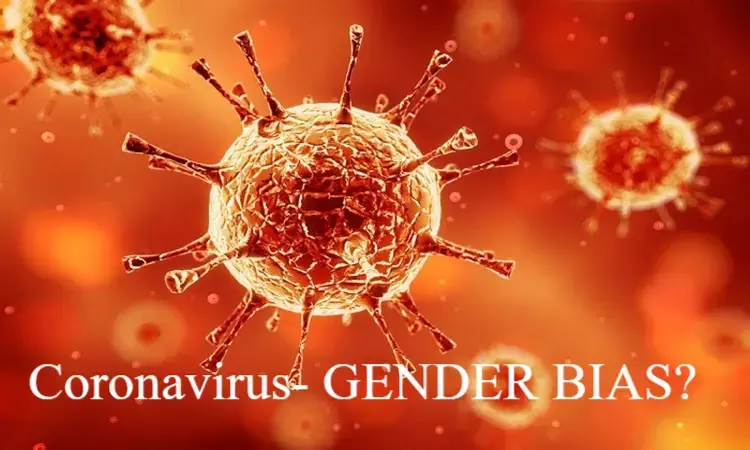- Home
- Medical news & Guidelines
- Anesthesiology
- Cardiology and CTVS
- Critical Care
- Dentistry
- Dermatology
- Diabetes and Endocrinology
- ENT
- Gastroenterology
- Medicine
- Nephrology
- Neurology
- Obstretics-Gynaecology
- Oncology
- Ophthalmology
- Orthopaedics
- Pediatrics-Neonatology
- Psychiatry
- Pulmonology
- Radiology
- Surgery
- Urology
- Laboratory Medicine
- Diet
- Nursing
- Paramedical
- Physiotherapy
- Health news
- Fact Check
- Bone Health Fact Check
- Brain Health Fact Check
- Cancer Related Fact Check
- Child Care Fact Check
- Dental and oral health fact check
- Diabetes and metabolic health fact check
- Diet and Nutrition Fact Check
- Eye and ENT Care Fact Check
- Fitness fact check
- Gut health fact check
- Heart health fact check
- Kidney health fact check
- Medical education fact check
- Men's health fact check
- Respiratory fact check
- Skin and hair care fact check
- Vaccine and Immunization fact check
- Women's health fact check
- AYUSH
- State News
- Andaman and Nicobar Islands
- Andhra Pradesh
- Arunachal Pradesh
- Assam
- Bihar
- Chandigarh
- Chattisgarh
- Dadra and Nagar Haveli
- Daman and Diu
- Delhi
- Goa
- Gujarat
- Haryana
- Himachal Pradesh
- Jammu & Kashmir
- Jharkhand
- Karnataka
- Kerala
- Ladakh
- Lakshadweep
- Madhya Pradesh
- Maharashtra
- Manipur
- Meghalaya
- Mizoram
- Nagaland
- Odisha
- Puducherry
- Punjab
- Rajasthan
- Sikkim
- Tamil Nadu
- Telangana
- Tripura
- Uttar Pradesh
- Uttrakhand
- West Bengal
- Medical Education
- Industry
Why Men more vulnerable to Covid-19 than women: European Heart Journal study throws light

They found that male sex was the strongest predictor of elevated ACE2 concentrations
London: After several studies revealed that men are more vulnerable to COVID-19 infection, evidence from a new larger research of several thousand patients shows that men have higher concentrations of angiotensin-converting enzyme 2 (ACE2) in their blood than women, a molecule that enables the novel coronavirus to infect healthy cells in men. This may help to explain why men are more vulnerable to COVID-19 than women, according to the researchers.
The study, published in the European Heart Journal, also found that heart failure patients taking drugs targeting the renin-angiotensin-aldosterone system (RAAS), such as angiotensin-converting enzyme (ACE) inhibitors or angiotensin receptor blockers (ARBs), did not have higher concentrations of ACE2 in their blood.
"Our findings do not support the discontinuation of these drugs in COVID-19 patients as has been suggested by earlier reports," said study co-author Adriaan Voors from the University of Groningen in the Netherlands.
Some recent research suggested that RAAS inhibitors might increase concentrations of ACE2 in plasma -- the liquid part of blood -- thereby increasing the risk of COVID-19 for cardiovascular patients taking these drugs.
The current study indicates that this is not the case, although it looked only at ACE2 concentrations in plasma, not in tissues such as lung tissue.
"ACE2 is a receptor on the surface of cells. It binds to the coronavirus and allows it to enter and infect healthy cells after it is has been modified by another protein on the surface of the cell, called TMPRSS2," Voors said.
"High levels of ACE2 are present in the lungs and, therefore, it is thought to play a crucial role in the progression of lung disorders related to COVID-19," he added.
For the findings, the researchers measured ACE2 concentrations in blood samples taken from two groups of heart failure patients from 11 European countries.
There were 1,485 men and 537 women in the first group, the index cohort, which was designed to test the researchers' hypotheses and research questions. Then the researchers validated their findings in the second group of 1,123 men and 575 women, the validation cohort.
The research team assessed the number of clinical factors that could play a role in ACE2 concentrations, including the use of ACE inhibitors, a history of chronic obstructive pulmonary disease, and coronary artery by-pass graft.
They found that male sex was the strongest predictor of elevated ACE2 concentrations. ACE2 is found not only in the lungs, but also the heart, kidneys and the tissues lining blood vessels, and there are particularly high levels in the testes.
The researchers speculate that its regulation in the testes might partially explain higher ACE2 concentrations in men, and why men are more vulnerable to COVID-19.
Last month, the study, published in the journal Frontiers in Public Health, found that men are more than twice as likely to die from the disease as compared to women.
Another study from the American Journal of Respiratory and Critical Care Medicine showed that males over 50 with non-communicable chronic diseases such as hypertension, diabetes and coronary heart disease are at greater risk of death from coronavirus.
Medical Dialogues Bureau consists of a team of passionate medical/scientific writers, led by doctors and healthcare researchers. Our team efforts to bring you updated and timely news about the important happenings of the medical and healthcare sector. Our editorial team can be reached at editorial@medicaldialogues.in.
Dr Kamal Kant Kohli-MBBS, DTCD- a chest specialist with more than 30 years of practice and a flair for writing clinical articles, Dr Kamal Kant Kohli joined Medical Dialogues as a Chief Editor of Medical News. Besides writing articles, as an editor, he proofreads and verifies all the medical content published on Medical Dialogues including those coming from journals, studies,medical conferences,guidelines etc. Email: drkohli@medicaldialogues.in. Contact no. 011-43720751


